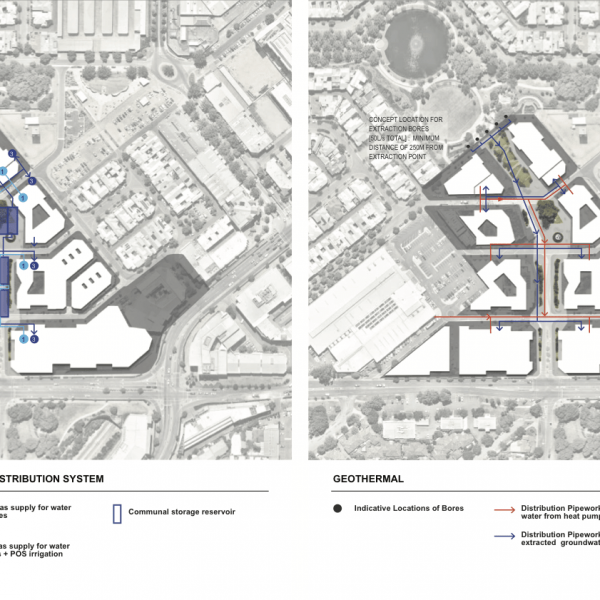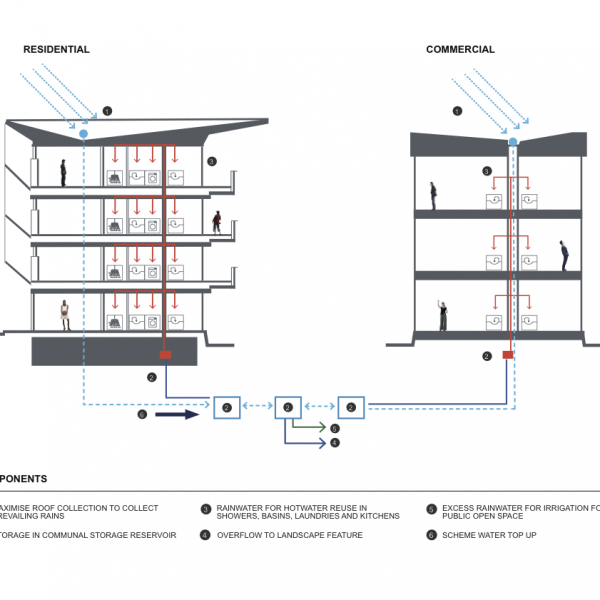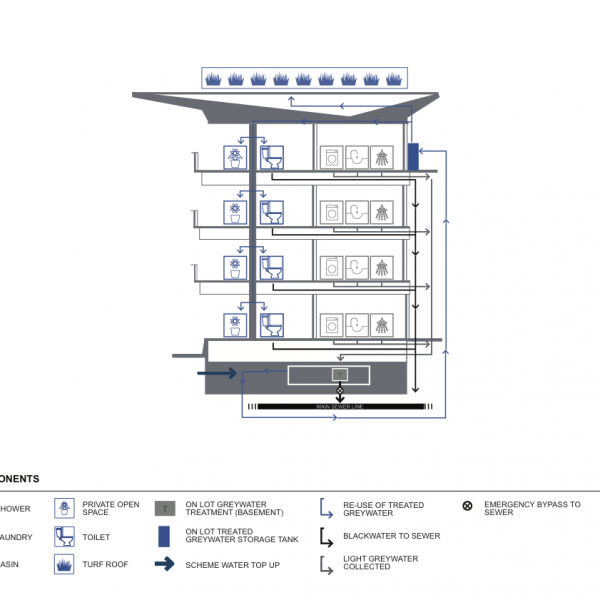AFC is an urban renewal project that exemplifies a precinct scale approach to ESD and de-centralised infrastructure provision
Location: Subiaco, Western Australia
Client: Metropolitan Redevelopment Authority
Time frame: 2007 – Ongoing
Services provided by Syrinx
Integrated Resource Management; Sustainable/Green Infrastructure; Sustainable Masterplanning; Water Sensitive Design
Project Phases Delivered
Project Phases Details
AFC is an urban renewal project that exemplifies a precinct scale approach to ESD and de-centralised infrastructure provision
The project showcases a centralised rainwater scheme (for offsetting potable hot water demand) and centralised shallow geothermal energy scheme (offsetting the development’s heating/cooling energy demand) servicing nine multi-residential and mixed-use development lots and approximately 2000 people.
Syrinx has maintained the role of lead sustainability consultant and service provider for the whole of project life, providing the development of a site-wide ESD framework, developer guidelines, interpretation design, asset management planning, regulatory approvals, monitoring and infrastructure operation and maintenance.
Awards and achievements
- Innovating for Sustainable Water and Environmental Outcomes Award (WA Water Awards 2020). Program partnered by the Department of Water and Environmental Regulation and Water Corporation.
- The AFC Redevelopment is the first example of a mixed-use development in Western Australia (and one of only a few in Australia) to incorporate precinct scale water recycling and geothermal energy to minimise the development’s ecological footprint. It is also the first project to have received endorsement from the WA Dept. of Health for the reuse of communal rainwater harvesting for internal potable (hotwater) purposes.
Key outcomes
- Development and implementation of innovative, research-led and site-specific responses that include integration of initiatives for renewable energy, beneficial water reuse (greywater and rainwater), waste recycling, sustainable design and construction practices, and education and awareness
- Incorporation of sustainable water initiatives which reduce conventional scheme water use by ~ 50%, equating to significant annual potable water savings
- Incorporation of sustainable energy initiatives which reduce energy use by ~ 50%, equating to significant annual energy savings and reductions in Greenhouse Gas emissions
- Demonstration that as an integrated system, decentralised water and energy infrastructure can compete economically with established utility services over an extended period of time
- Removal of barriers (technical, governance and perception) to enable the development industry to replicate its approach, initiatives and outcomes to deliver water efficiency and renewable energy options with confidence into the future


